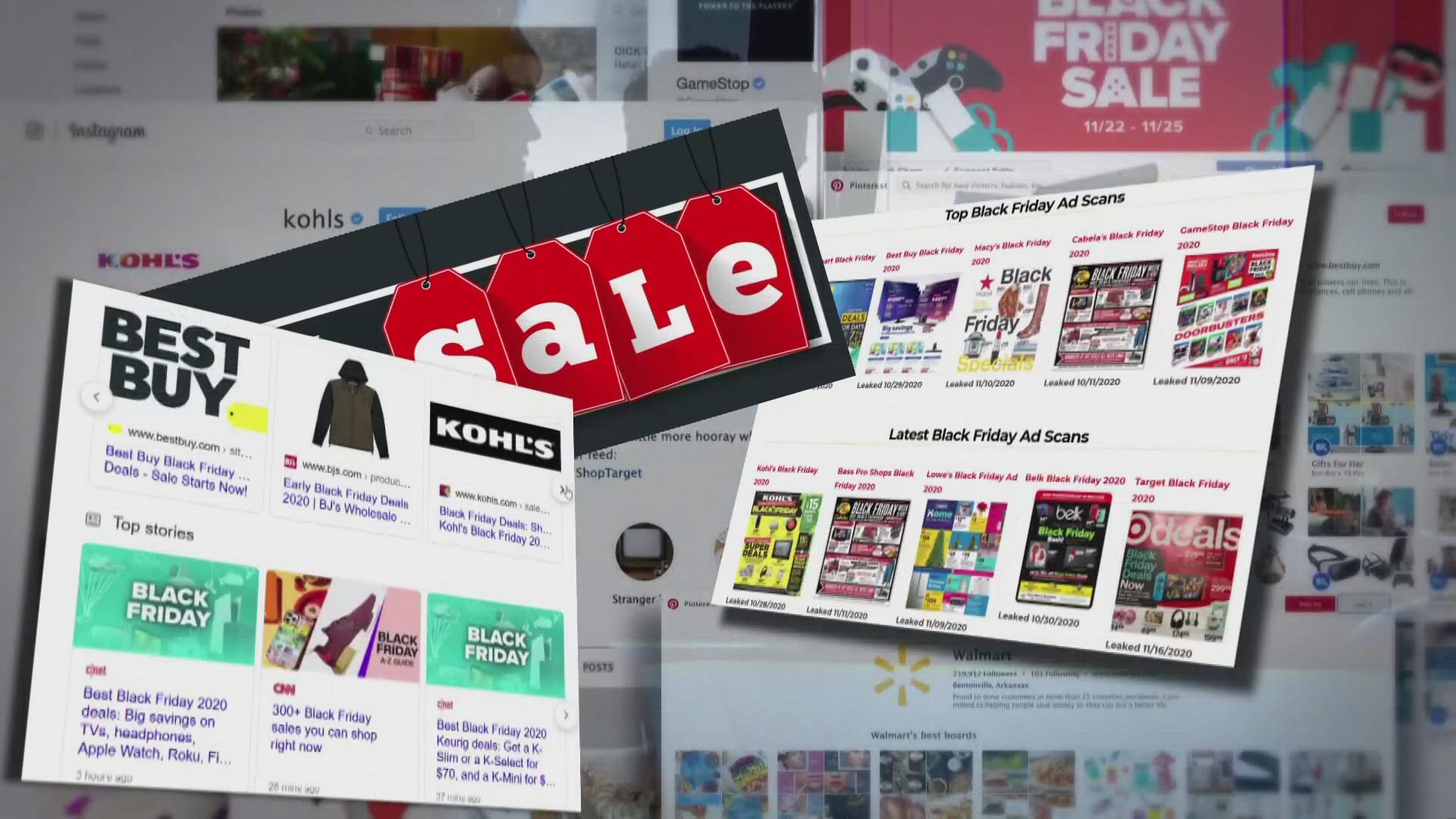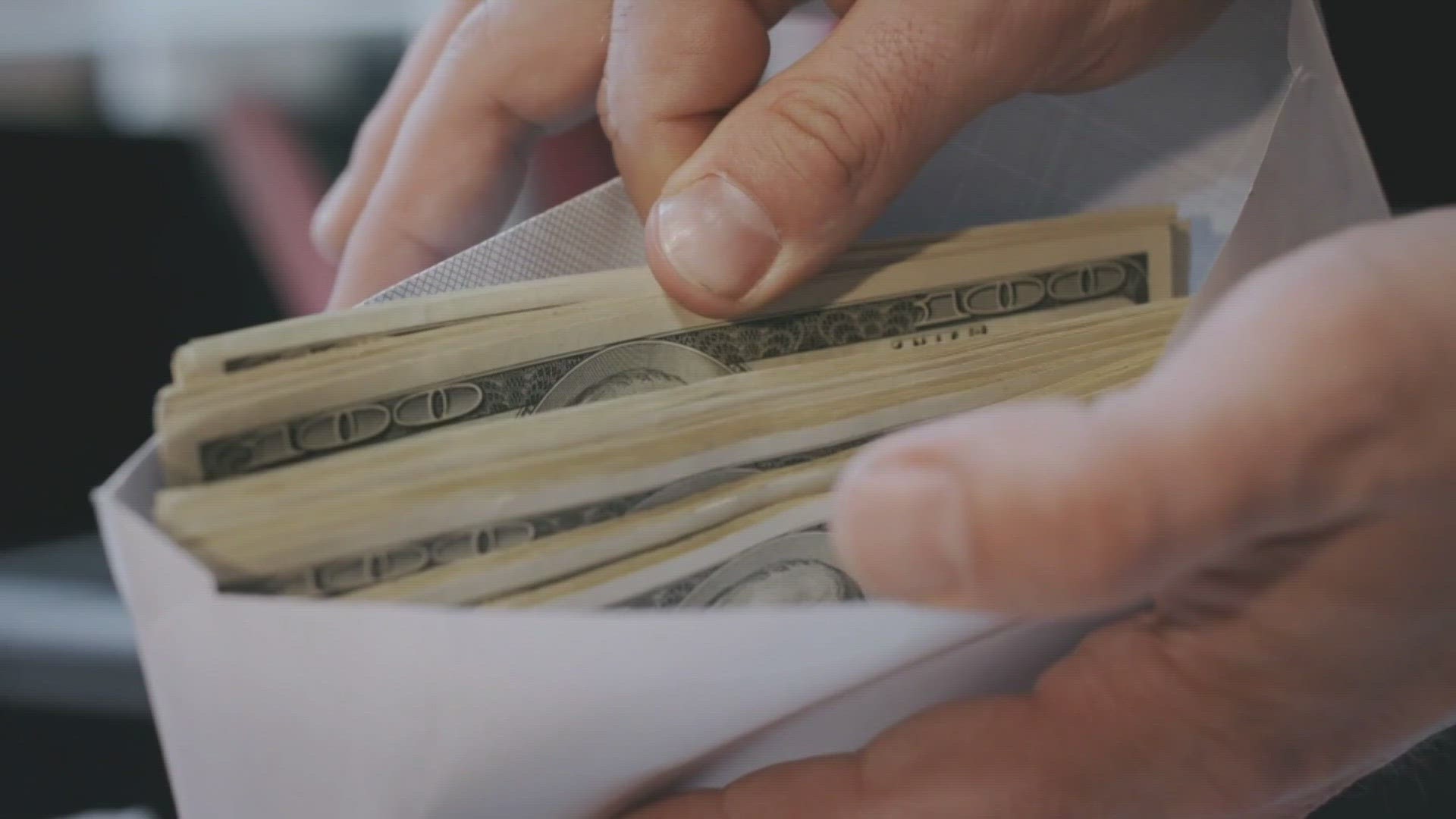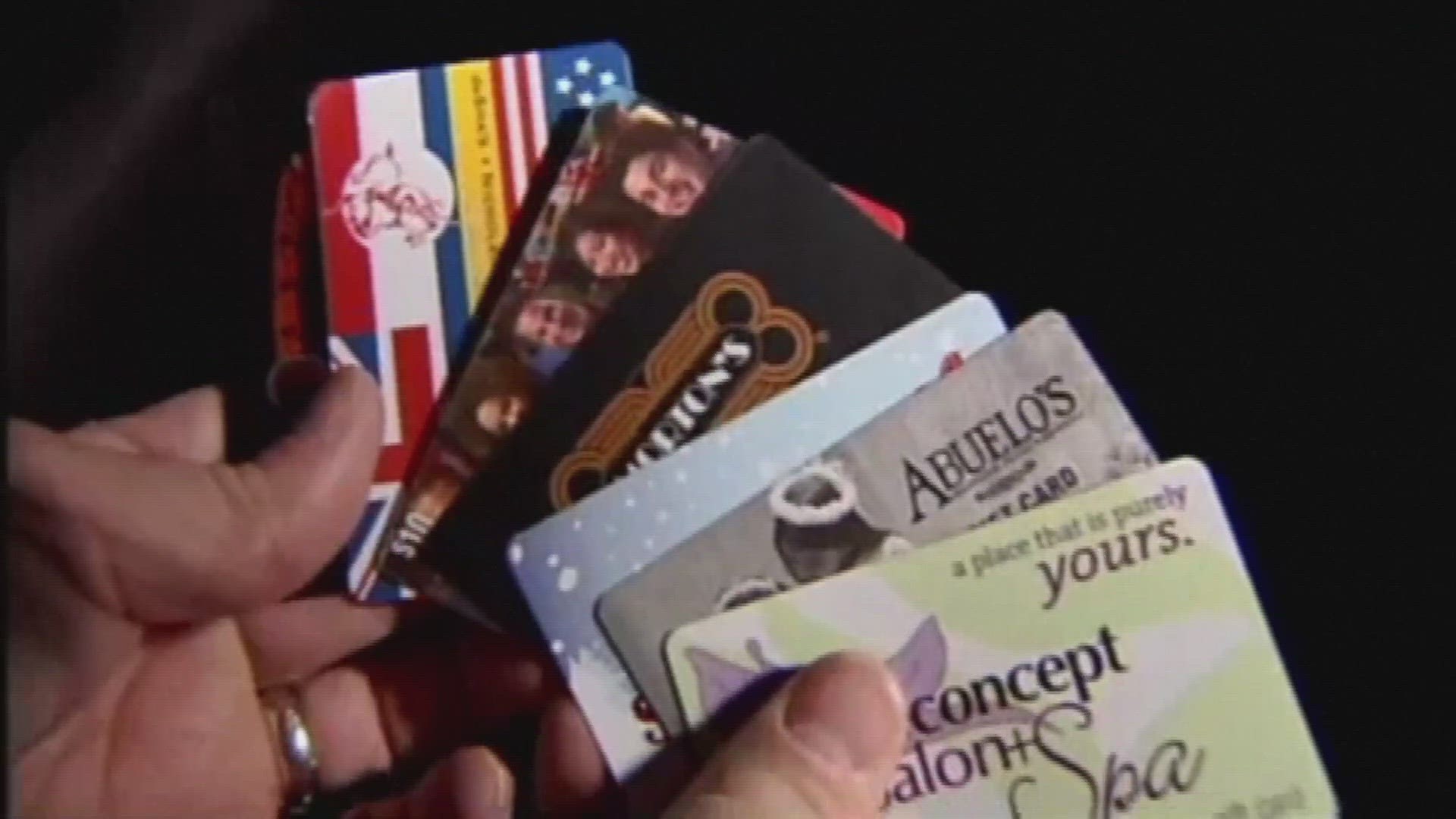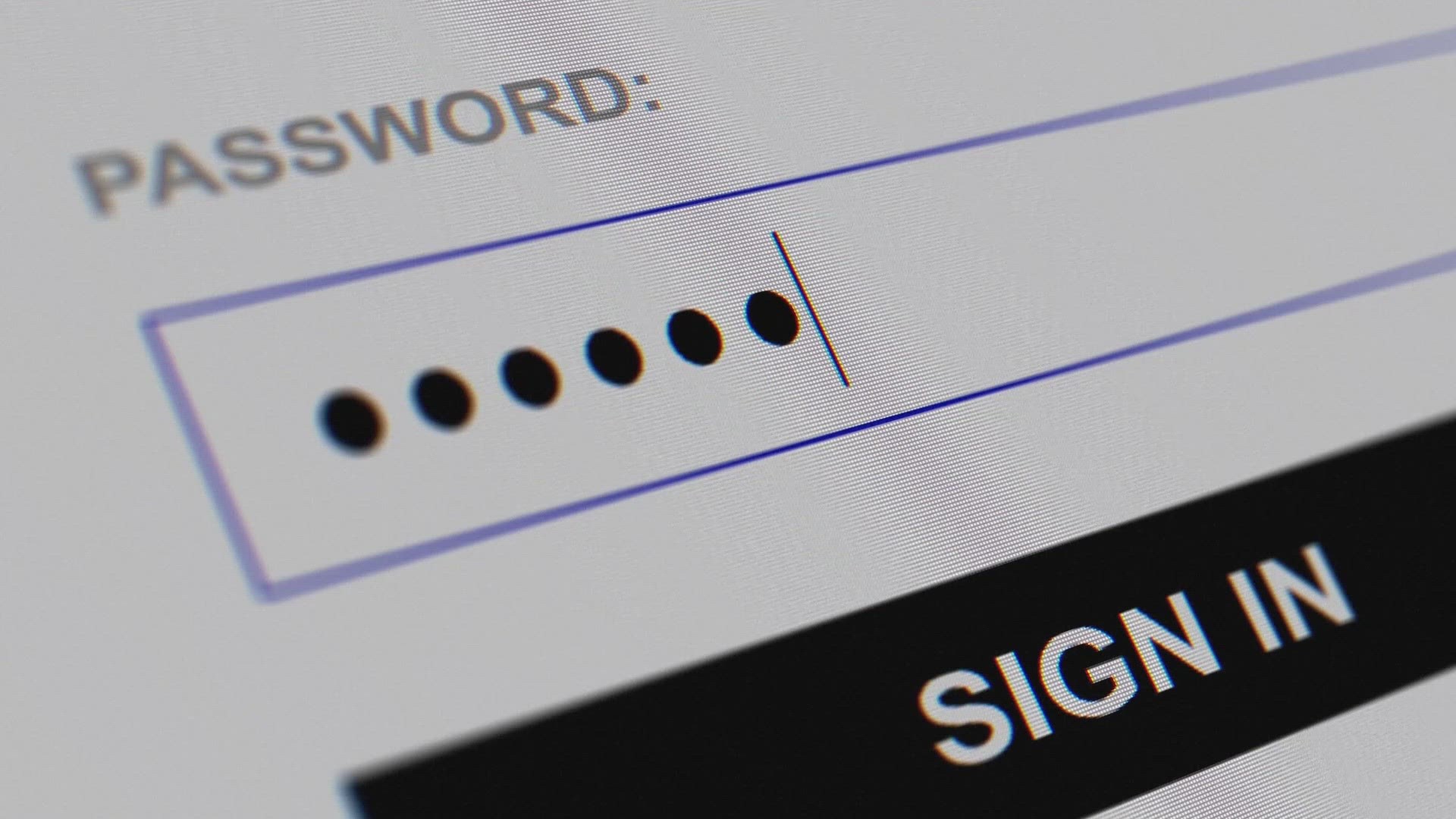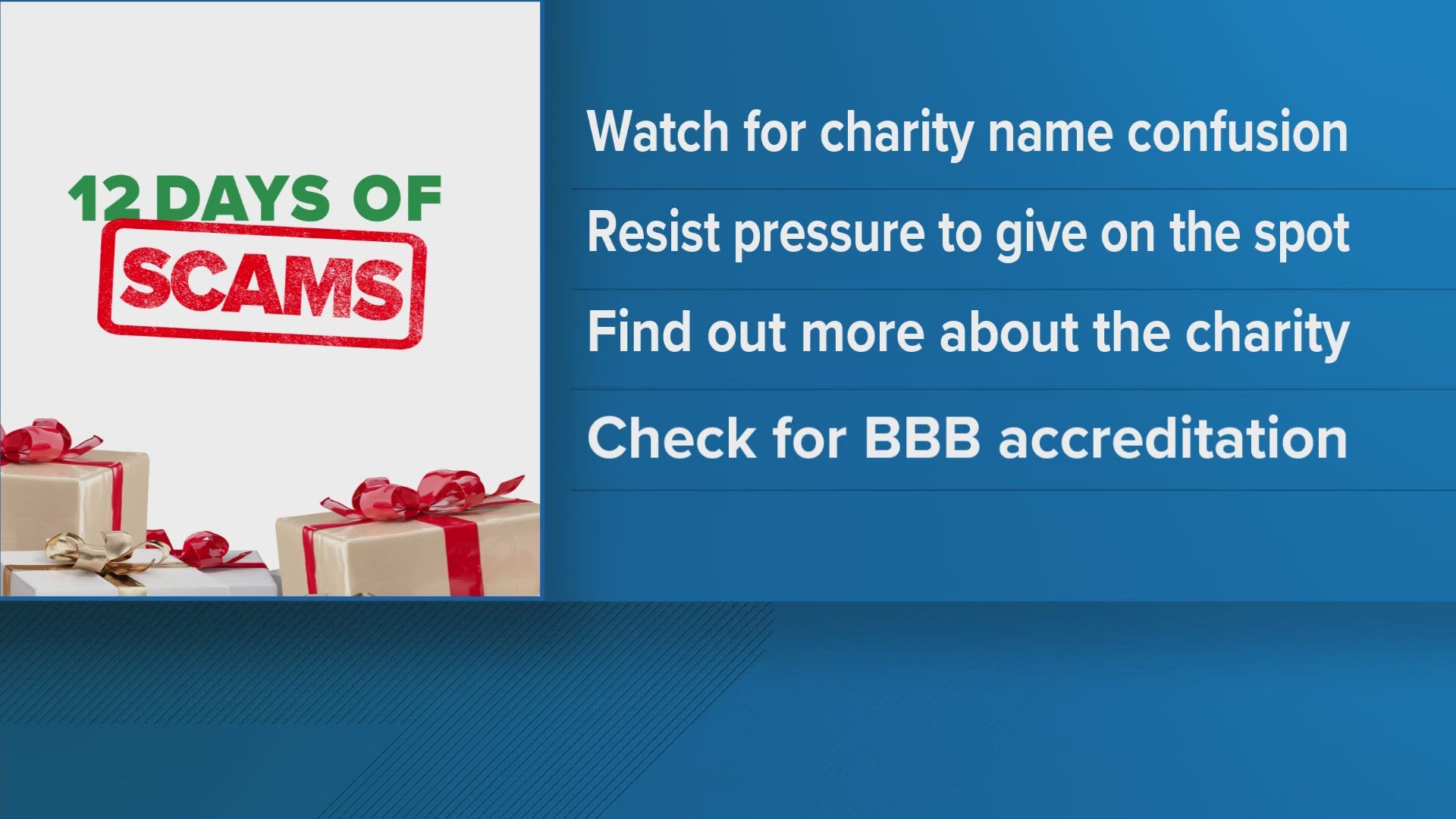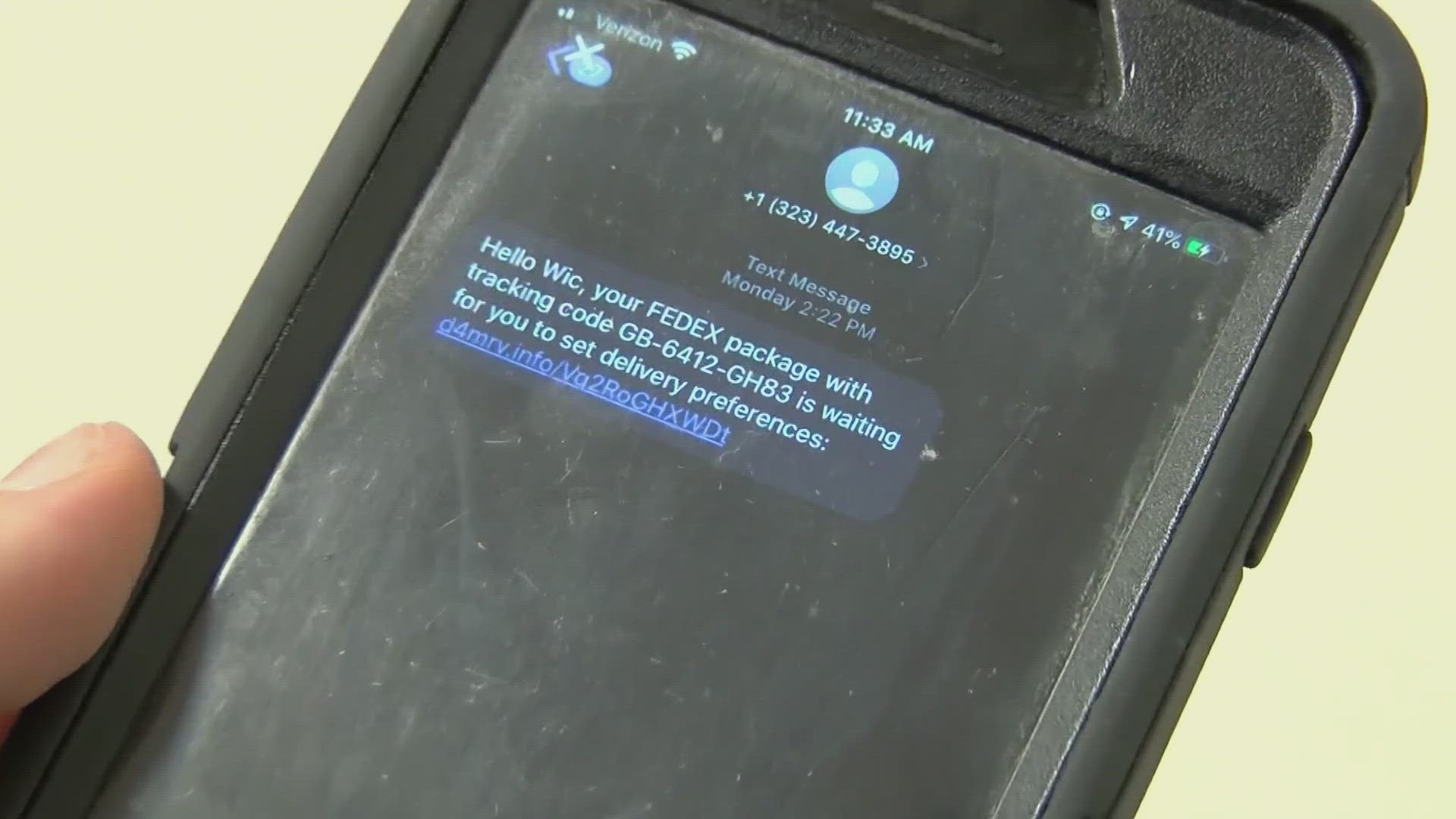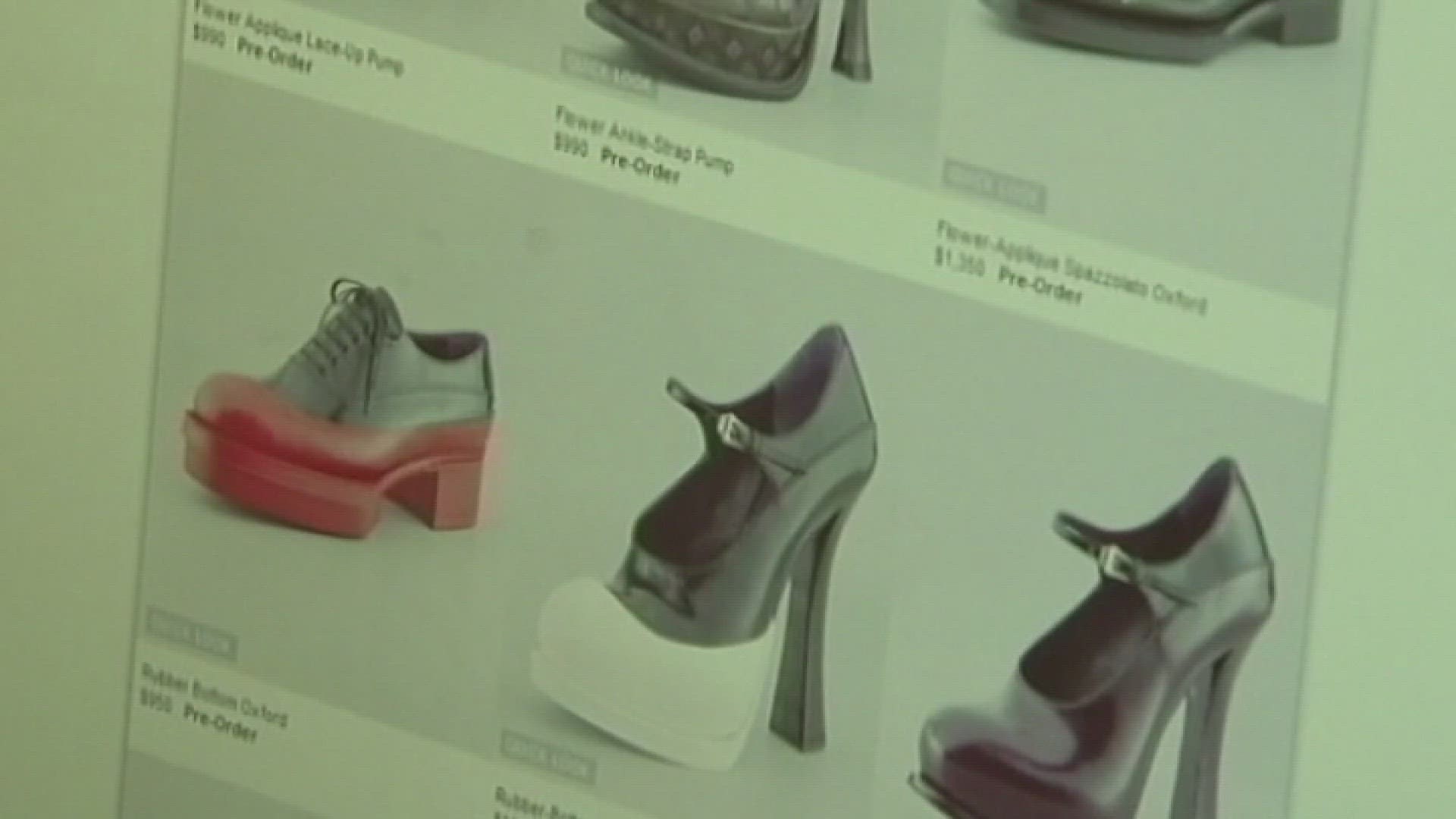KNOXVILLE, Tenn. — Scams are growing more common and becoming harder to detect.
The Better Business Bureau released a "12 Scams of Christmas" list to help consumers identify scams during the busy shopping season.
BBB of Greater East Tennessee Tony Binkley said that the holiday season is "probably the biggest time for scammers." He said most people let their guard down during this time of year because of how busy it can be.
From Dec. 4 through Dec. 19, we will update this list every day with a new scam that consumers need to be on the lookout for.
1. Misleading social media ads
As you scroll through your social media feeds, you probably see many products advertised. It's important to always research before you buy a product from these ads.
The BBB Scam Tracker receives daily reports of people paying for items that they never received, getting charged monthly for a free trial that they never signed up for, or receiving an item that is counterfeit or much different from the one advertised.
"So there's all kinds of ads that pop up on social media, we've all seen them," Binkley said. "Some of them offer incredible deals. So, you've got to ask yourself a question. If something sounds too good to be true, it generally is."
2. Social media gift exchanges
This scam is commonly known as "secret sisters" and involves things like exchanging bottles of wine, purchasing $10 gift cards online, adding your email address to a list where you get to pick a name and send money to strangers to pay it forward and more.
"It sounds harmless. You know, the Federal Trade Commission says it's an illegal pyramid scheme number one, but two is you got to think about what you're giving up to get a $10 gift or a bottle of wine, you're giving up your contact information, your email your name, you may be giving up information from friends of yours. So, what are you willing to give up to hopefully get something for free," Binkley said.
It's recommended to avoid these schemes altogether. Don't buy or ship anything to people you don't know, just stick to buying gifts for your friends, family and coworkers.
3. Holiday apps
There are dozens of holiday-themed apps where children can chat live with Santa, light the menorah or even relay their holiday wish lists. It's important to review privacy policies to see what information will be collected.
"Every app, you've seen it, you know, we're going to need these permissions to access your camera and your phone and your contacts and things like that. So, look at what you're giving permission for that app to access. Because, again, your personal information is is is your is critical that you keep that safe. So just pay attention to what you're giving up to get something for free," Binkley said.
4. Fake texts claiming that you've been hacked
The BBB receives multiple reports about fake texts and emails that claim an account you have has been hacked. Victims of this scam are told there's been suspicious activity on one of their accounts and urges them to take immediate action. Be extra careful about unsolicited calls, emails and texts.
"Scammers will not stop at anything to try to get your personal information, because your personal information is their currency, because that's how they convert that. So if you get a text, that you're not expecting the reset your password, I would contact that company directly," Binkley said.
5. Free gift cards
Scammers have been known to send bulk phishing emails requesting personal information for free gift cards. In some of these emails, scammers impersonate legitimate companies and promise gift cards to reward their loyal customers.
"Do they want your name, your email, your social security number for free? Are you willing to give that up? I mean, there's probably no such thing as a free gift card," Binkley said. "But you'll get notifications about anything that's going to get your attention and try to make you act and react."
6. Temporary holiday jobs
Retailers typically hire seasonal workers during the holiday season to meet the demands of shoppers. This is a great way to make extra money, however, job seekers need to be on the lookout for employment scams aimed at stealing money and personal information from job applicants.
Employers will never ask for payment upfront for a job and it's the employer's responsibility to pay for supplies and training fees. Be wary of a job offer that doesn't require an interview and never work for a company before you're hired.
7. Look-alike websites
Scammers are creating websites that look very similar to legitimate ones to trick consumers. The goal is to get you to download malware, make a purchase that gets you nothing and share personal information. During the holiday season, it can be easy to fall victim to this.
"[Scammers] can make look like websites look very real. They can just go to the real website, copy and paste the pictures off of it, and put it in their own website," Binkley said. "Again, you got to look for the 'HTTPS' up there. You want to look for their return policies. You want to look for contact information. You want to do your due diligence—make sure you're on a real site."
8. Fake Charities
The last few weeks of the year is a busy time for donations. Donors are advised to look out for fraudulent charities and scammers pretending to be people in need.
If a charity won't answer questions or demands the money be donated right then and there, that's a sign of a scam.
"If they try to pressure you on the phone to get money out of you right now, that's a red flag. A legitimate charity is happy to take your money two days from now versus now. It's not going to make a big difference in their whole life," Binkley said. "They understand if it's a legitimate charity, they won't have a problem with you asking questions."
9. Fake shipping notifications
With the holiday season, comes plenty of online shopping. You might receive more notifications about shipping details from retailers and carriers. Around this time, scammers will send phishing emails with links enclosed that may allow unwanted access to your private information.
"You may get one that, 'Hey, there's a problem with your delivery, we need to reroute this, click on this link.' Don't click on that link—don't do that. Again, it's an unsolicited link," Binkley said. "If you think there's an issue with your ship, you may contact the shipping company directly."
10. Shopping sites with deep discounts
Websites with deep discounts—TEMU, WISH and SHIEN—are becoming more popular. TEMU has recently grown very much in popularity and is a legitimate company. However, that doesn't mean everyone has had a great experience.
"We've seen great deals from some of these sites that actually work and get delivered," Binkley said. "And, we've seen and heard hundreds of horror stories where what was delivered wasn't even close to what they thought they were buying."
When shopping on one of these sites, use a credit card instead of a debit card. Pick a credit card with a low limit and do not save the card's information to the site.
11. Top holiday wishlist items
Low-priced luxury goods, clothing, jewelry and electronics are almost always knockoffs. This also applies to popular toys. Be very cautious when purchasing popular toys from resellers on Facebook Marketplace and other platforms.
"There's nothing wrong with Facebook Marketplace—it's fine. But the person that listed it there may not be fine," Binkley said. "It is so hard to control. There's so many people that are on social media. These social media sites just can't control it."
If possible, you should only buy from reputable stores and websites.
12. Puppy scams
Furry friends can be a popular gift during this time of year. However, experts say 80% of sponsored pet advertisements could be fake.
"You'll send someone the money and then something comes up," Binkley said. "As long as you continue to send the money, they're going to have issues continue to pop up. When you stop sending the money, you won't hear from them again and you'll never see the dog you thought you were going to get."
Do your research and only buy from a reputable dealer. You can also always adopt a dog from the local animal shelter. Don't buy a pet without seeing it in person and if that isn't possible, ask for a live video call. Avoid wiring money or using a cash app or gift card, if you use these you have no way of getting your money back if something goes wrong.


